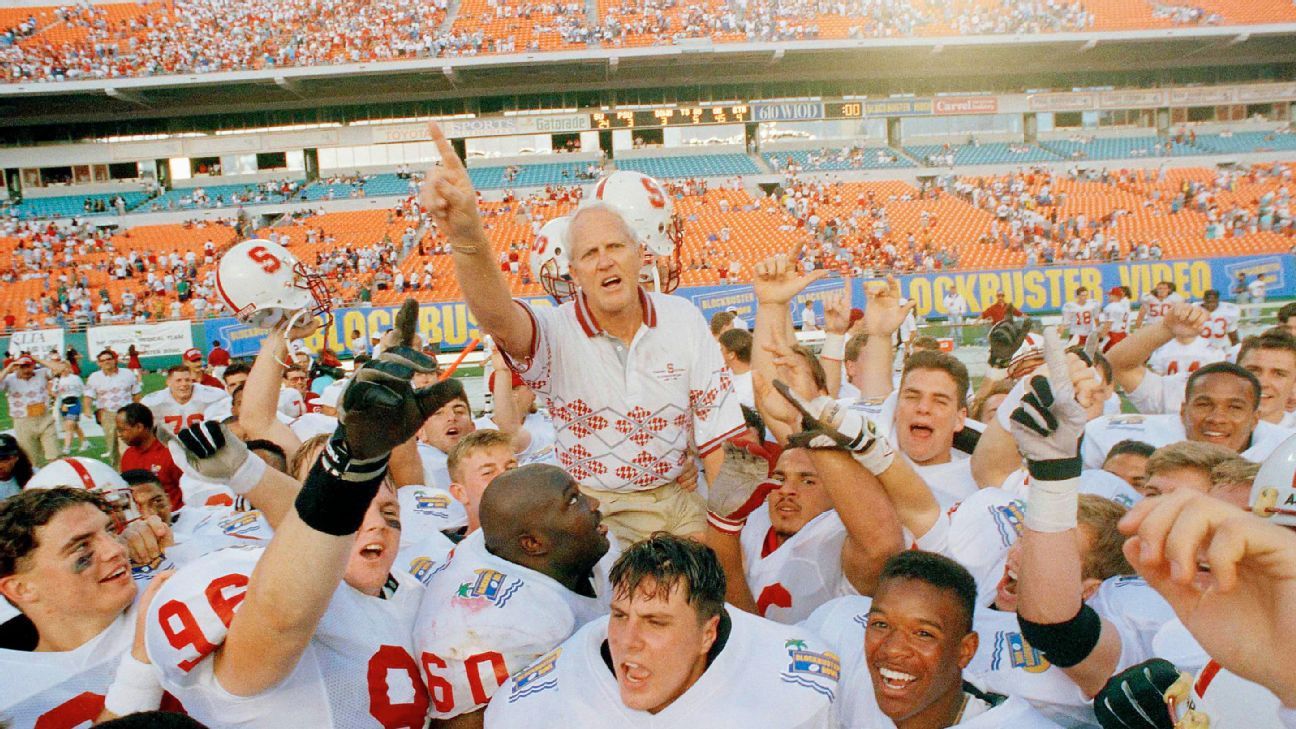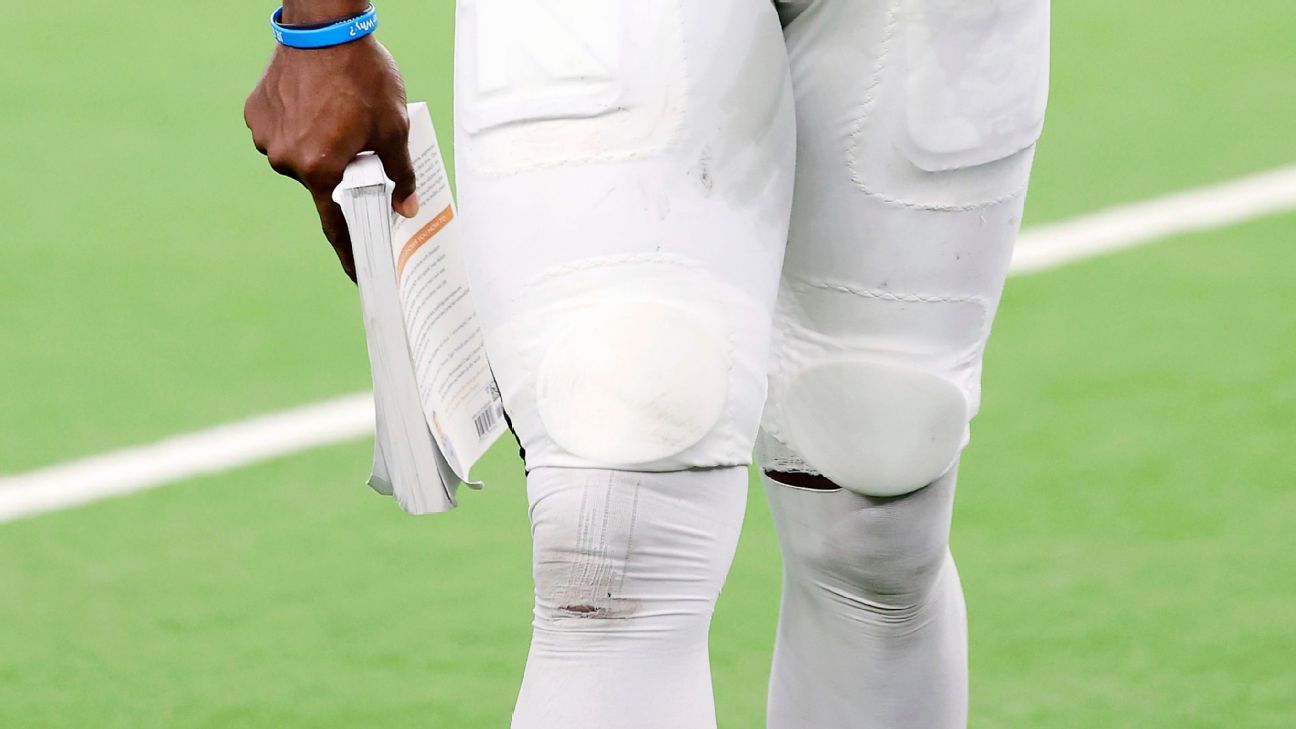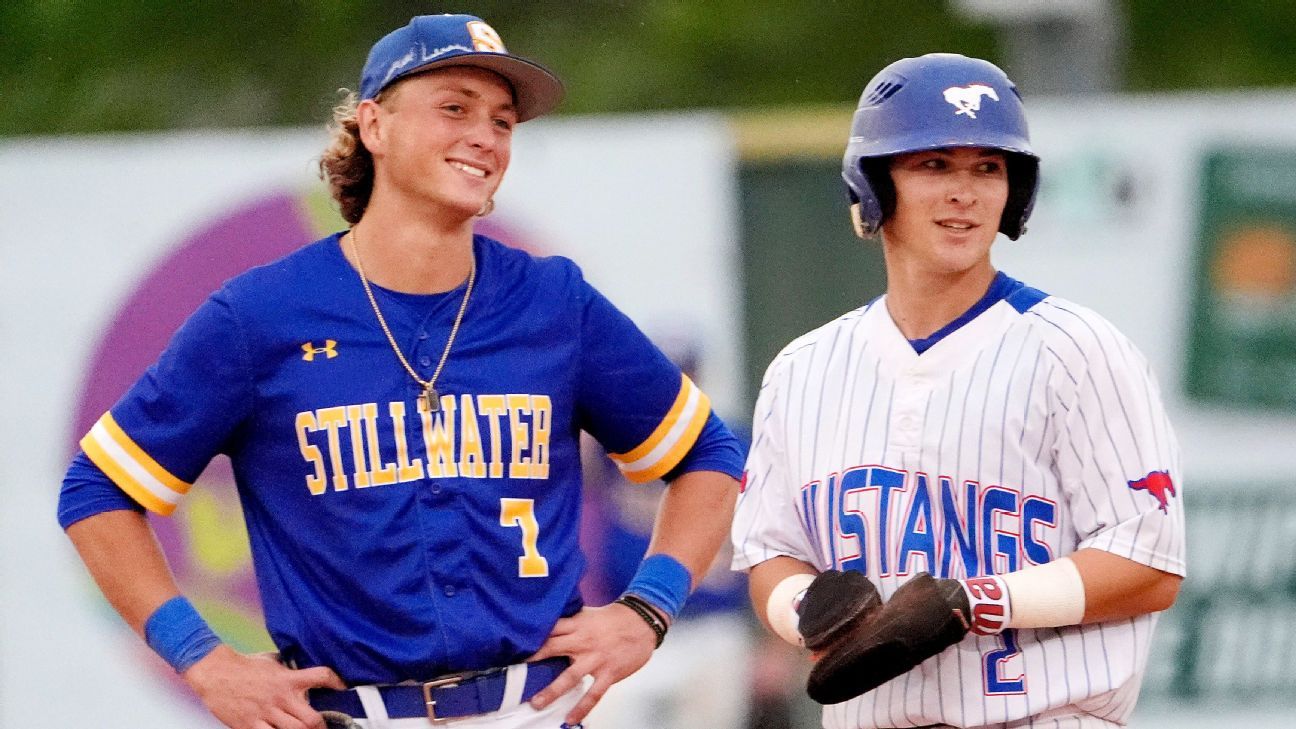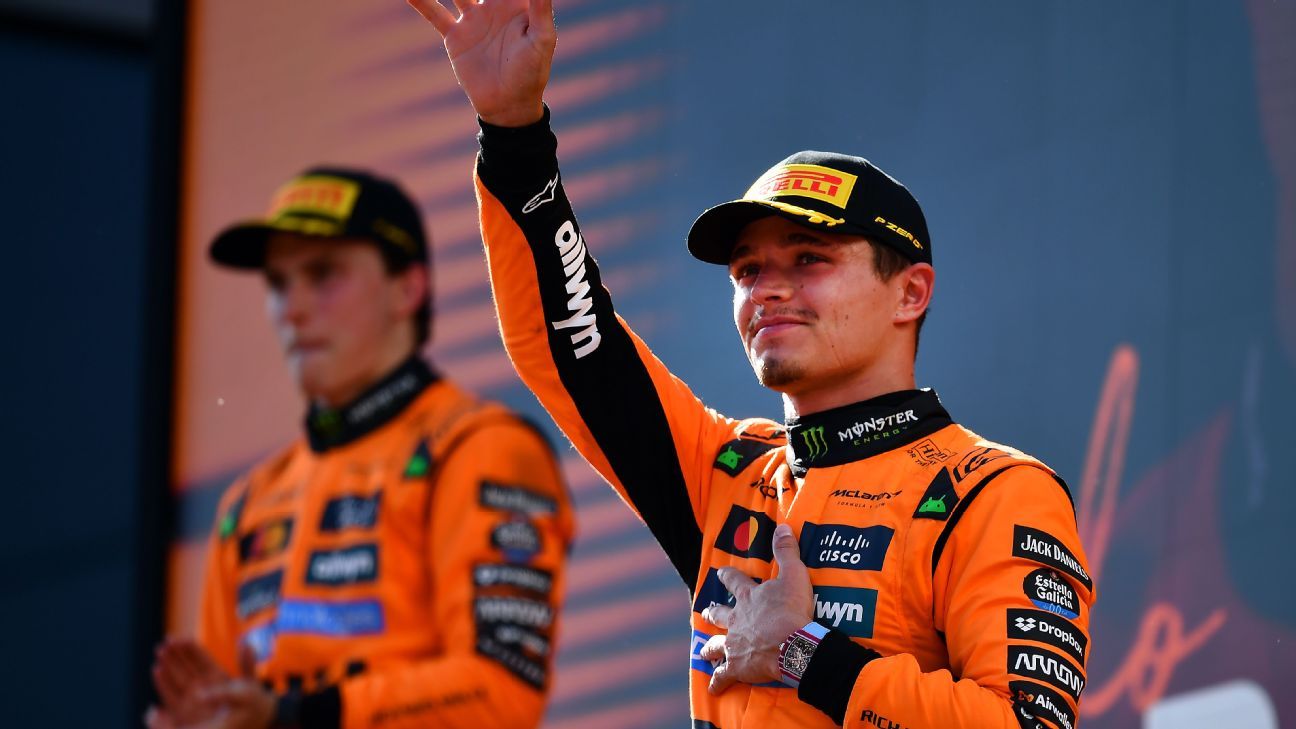His father, though, was not so keen.
“My dad never let me play against him,” Shelton told ESPN. Expanding in an on-court interview at the Australian Open earlier this year, he added: “He would never let me play him, I don’t think he ever will let me play him. He probably still thinks he can beat me.”
In a sport where an increasing number of players are children of former players, beating a parent is something of a rite of passage. But not everyone gets the chance — and some don’t even want to beat their mom or dad.
Denmark’s Casper Ruud is the son of Christian Ruud, a former top-40 player and the inspiration for Casper, who has reached three major finals and been ranked as high as No 2. Ultracompetitive, the Ruuds dispute how old Casper was when the torch passed between the two.
“I tend to say I was 15, and he would say, no, you were like 17, so we can’t agree on it,” Ruud told ESPN. “I would even say I was 14, but that was not regularly, like it was at 15, 16. I beat him once at 14.”
In fact, when they did play a few matches with Ruud at 14, his dad added some money into the bargain.
“The bet was kind of like, if my dad beat me, 6-0 and 6-1, I would owe him $20. If it was 6-2, it was neutral and every game over 6-2 was like $10 per game for me. So if it was 6-3, it was 10 bucks and 6-4 was 20 bucks for me. And then somehow, one weekend, I was able to beat him 6-3, it was a bit out of nowhere and he didn’t play well, so that’s what I remember. He did beat me again, but from 15, 16, was when I started to really win.
There was no guilt when he did start to win. “His curve was going this way (down) and mine was going this way (up). So at some point we would cross paths and physically, he’s not where he was as a player. So that was just a question of time, I guess.”
Maria Sakkari is one of the few women players to have a professional tennis-playing parent. The daughter of former top 40 player Angeliki Kanellopoulou, Sakkari recalls playing games and tiebreaks against her mom when she was very young.
“I remember a few summers that we would train together,” Sakkari told ESPN at Wimbledon. “She was still playing at the time. Then at some point she broke her knee, so she stopped playing. It was a pretty bad injury.”
For Sakkari, the fact that her mother could appreciate what she goes through was more important than trying to beat her.
“I think she really enjoys the fact that I became better than her and that we had the chance to train a little bit together in the past,” Sakkari said. “But it’s also very important that she keeps her role more of a mother. She gives me advice, but that’s it, and which is great, because then we have a great balance as a family.”
Canadian Denis Shapovalov was coached by his mother, Tessa Shapovalova, for many years. Shapovalova played on the Soviet Union national team before becoming a coach and Shapovalov said they never really played matches against each other.
“We did some point situations and stuff like that, especially when I was much younger,” Shapovalov told ESPN at Wimbledon. “There’s a couple of YouTube videos where I’m a little kid and I was playing against her. She was kind of tapping the ball to me. It was fun to play against her but we never played sets and stuff like that. But for sure, I always felt like she could beat me.”
Seb Korda, the son of former Australian Open champion Petr Korda and Regina Rajchrtova, a former top 30 player herself, is still waiting for a first win.
“I have never beaten either of them,” the American said. “That’s the problem. Last time I played my dad I think I was 13 years old and he either bageled me or double-bageled me, and we never played again. I’m sure if we played now, I would hope to win. But I just don’t want to play him. He’s forever my idol, and it would be weird to play him in a match and beat him.”
Jack Draper’s father, Roger Draper, never made it as a pro but was a decent player and later became CEO of the Lawn Tennis Association, the governing body of tennis in Britain. “It probably wasn’t until I was about 12, 13 where I could beat my dad,” world No. 4 Draper said. “For my brother it was a little bit later.”
Regardless of trying to beat his father, Draper said the benefits of being in a sporting environment were more important.
“Especially having an older brother as well who has always beaten you,” he said. “Whether it’s ping pong or tennis or anything, it really sort of builds that competitor in you until you beat them. For instance, my brother, I think I played him once, and he beat me. He’s going to always have that over me.”
Taylor Fritz’s mother, Kathy May, was ranked inside the world’s top 10 at one stage. For a young Fritz, beating his mum was a big deal, but not as big as when he passed her in the rankings.
“I think I could start beating my mom around the age of like 14,” Fritz said. “I could beat my dad before that because he’s pretty old. I think it was [more of] a big deal to beat her career-high ranking and say that I’m the best player in the family.”















Leave a Reply